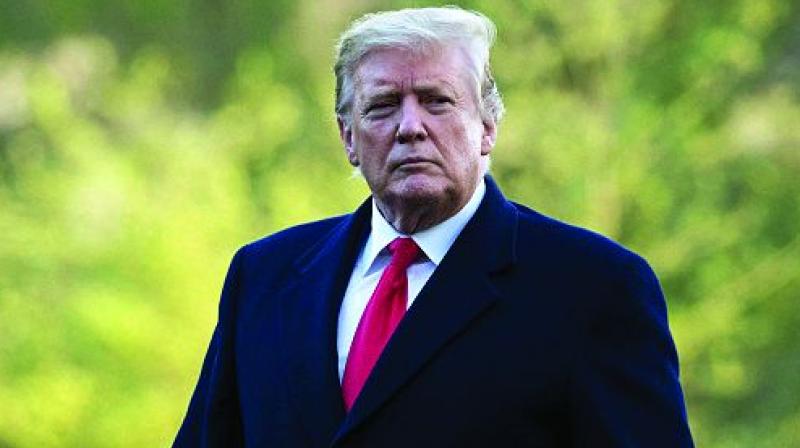Donald Trump was told not to worry about oil flare-up

Washington: US President Donald Trump's unexpected decision to ban all Iranian oil purchases after May 1— ending exemptions for eight nations—came after hawkish economic and security advisors allayed the president's fears of an oil price hike, according to three sources familiar with the internal debate.
The unprecedented move to fully sever Tehran's financial lifeline—finalized just days before the April 22 announcement—underscores the strong influence of hard-liners within Trump's inner circle. They had for months argued for tightening the sanctions over the objections of some State Department officials who favored allowing some partners and allies to keep buying Iranian oil.
"No one's actually tried to take this all the way to zero," a senior administration official told Reuters, adding that forging a consensus among government agencies required "a lot of work."
President Donald Trump has been eager to halt Iran's oil exports since slapping sanctions on the Islamic Republic last November for the first time since 2015, a move intended as punishment for Iran's nuclear ambitions and its support of armed militant groups in the Middle East.
Trump initially backed a go-slow approach, providing waivers to allies and trading partners such as China, India and Turkey.
The United States currently removes about 2 million barrels of oil per day from the world's supply through sanctions on the Iran and Venezuela industries. But Washington hopes that soaring US oil production - now at an all-time high of more than 12 million barrel per day - will keep global markets well-supplied and hold prices down.
By the weekend of April 20, with the initial 180-day waivers given to countries due to expire May 1, top economic and security advisors convinced Trump that the time had come to cut off Iranian oil exports completely, according to the sources, who spoke on condition of anonymity.
The State Department had been engaged in talks with at least five of the eight economies holding waivers, according to sources - China, India, South Korea, Japan and Turkey.
Trump discussed the matter with National Security Adviser John Bolton, Treasury Secretary Steve Mnuchin, Energy Secretary Rick Perry as well as Secretary of State Mike Pompeo.
While Bolton and Perry backed ending the waivers, some in Pompeo's State Department reiterated worries about the potential for rising oil prices, the sources said, but they ultimately dropped their objections and supported the more aggressive policy on Iran.
The decision caught several US allies and Iranian oil buyers off-guard. China's Foreign Ministry issued a formal complaint to the United States.

